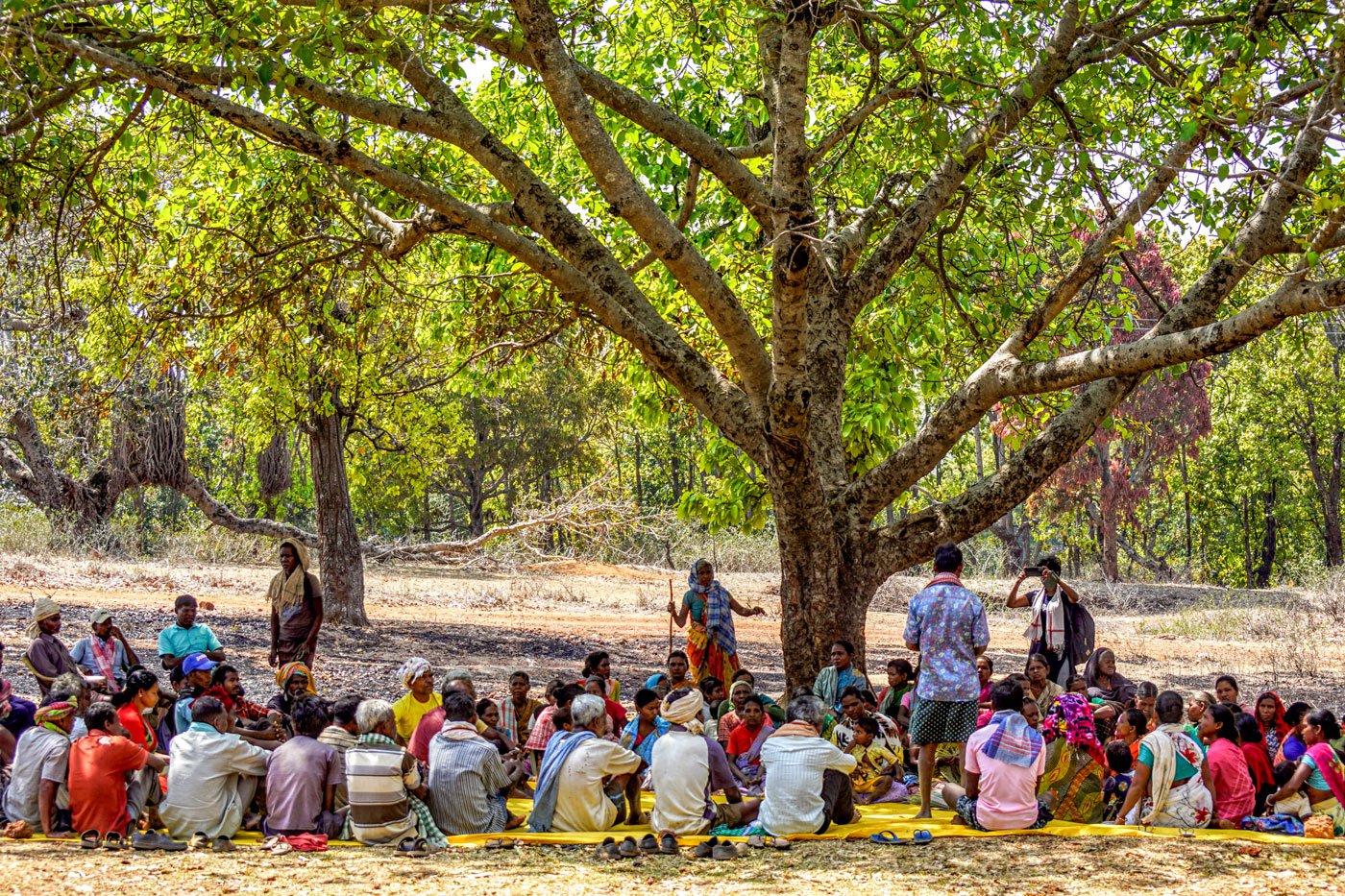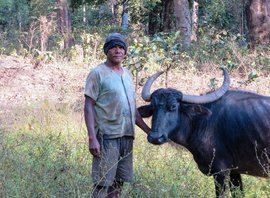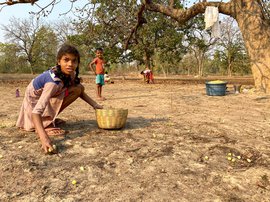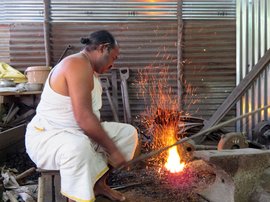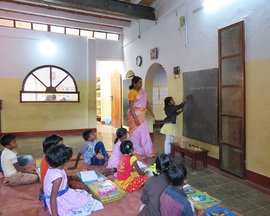“It would be great if before the monsoon we can repair the gram sabha building,” says Sarita Asur, speaking to the people of Lupungpat.
The village meeting has just begun, after a drummer announced it in the main street a short while ago. Men and women stepped out of their homes and assembled at the gram sabha secretariat – the two-room building that Sarita is seeking funds to repair.
The people of this village in Gumla district of Jharkhand immediately agree and Sarita’s motion goes through.
The former national hockey player later tells this reporter, “now we know we are responsible to solve our problems, and our gram sabha can develop our village. It has empowered all of us and especially the women,” says Sarita.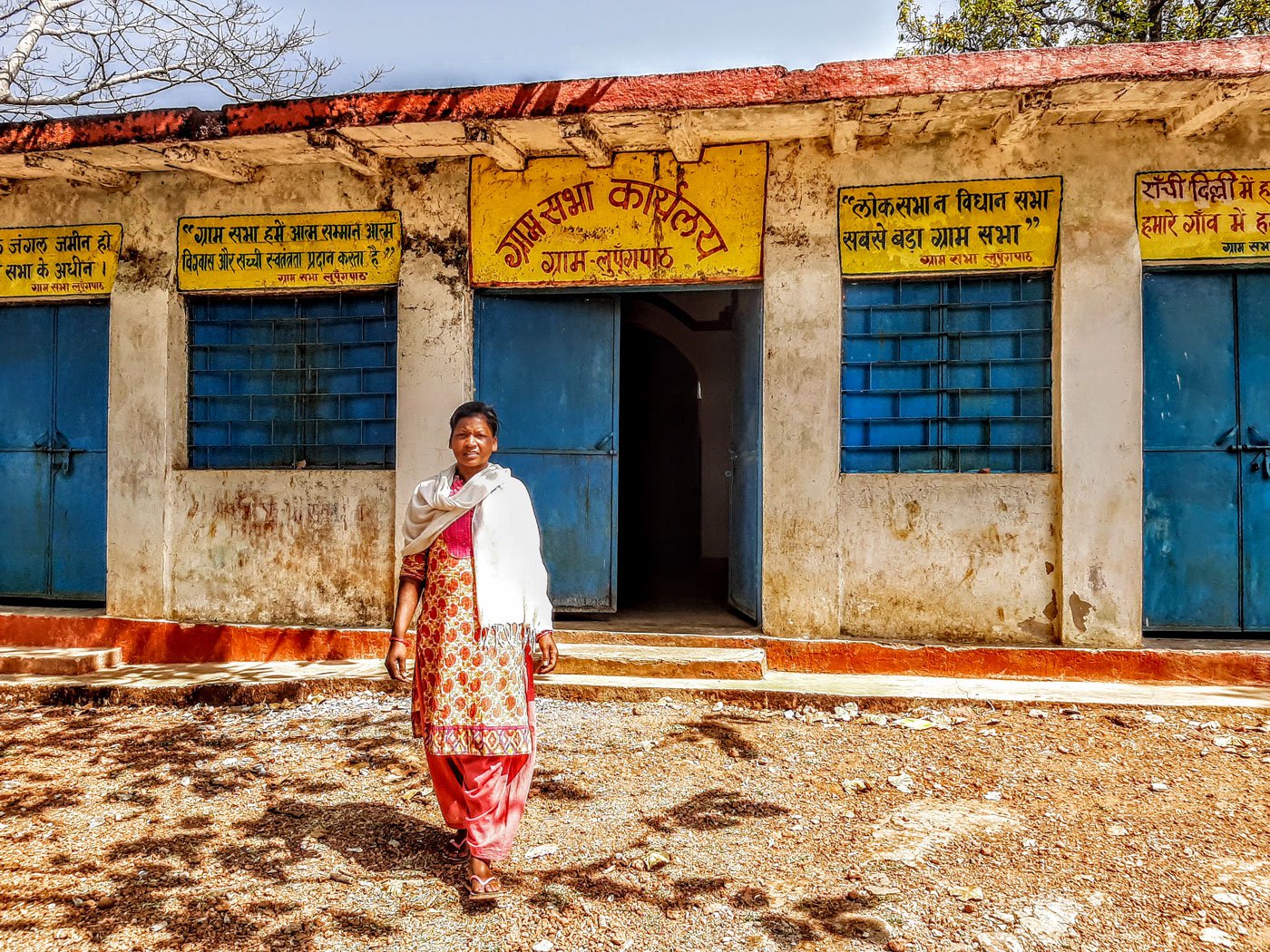
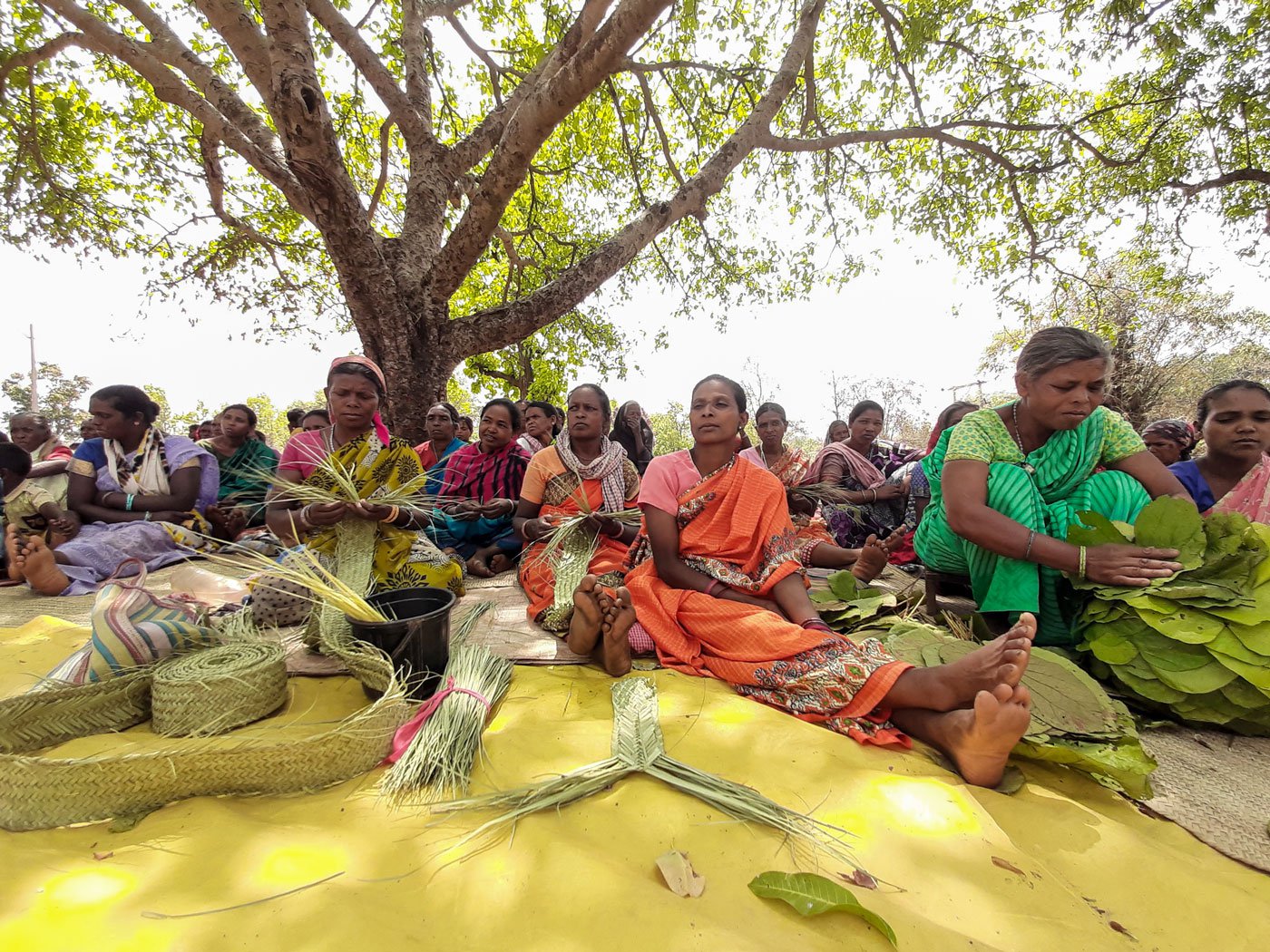
Left: Sarita Asur outside the gram sabha secretariat of Lupungpat village. Right: The gram sabha discusses issues relating to water security, education, and healthcare
Lupungpat’s active gram sabha in Gumla district is the talking point here in Jharkhand. Over an hour’s drive from the district headquarters, and about 165 km from Ranchi, Jharkhand’s capital, the remote village is not easy to reach. It is located inside the forest, and one needs to climb a hill and then start down a kachha road to get here. Large public transport buses are not easily available, but autos and small vehicles do appear, though not very often.
The village is home to about 100 families of the Asur community – listed as PVTG (Particularly Vulnerable Tribal Group). Besides Gumla, the tribe lives in Lohardaga, Palamu and Latehar districts of Jharkhand, and their total population in the state is 22,459 ( Statistical Profile of STs in India, 2013 ).
Roughly half the village is literate, and yet documentation is carried out for all gram sabha work. “Everything is being documented. The agenda is being set, and [we are taking up] issues that are of people’s concerns,” says Sanchit Asur, a dynamic youth leader and former football player. “The gram sabha belongs to both men and women,” he adds, underlining the general shift in a more gender-equal committee.
Sarita points out that earlier gram sabha meetings were attended only by men. “[We] women were not aware of what was discussed,” says the former national hockey player. Meetings focussed primarily on solving fights between families in the village.
“But now that is not the case. We are participating in the village gram sabha and discussing every issue, and our opinion too matters in the decision making,” Sarita adds happily.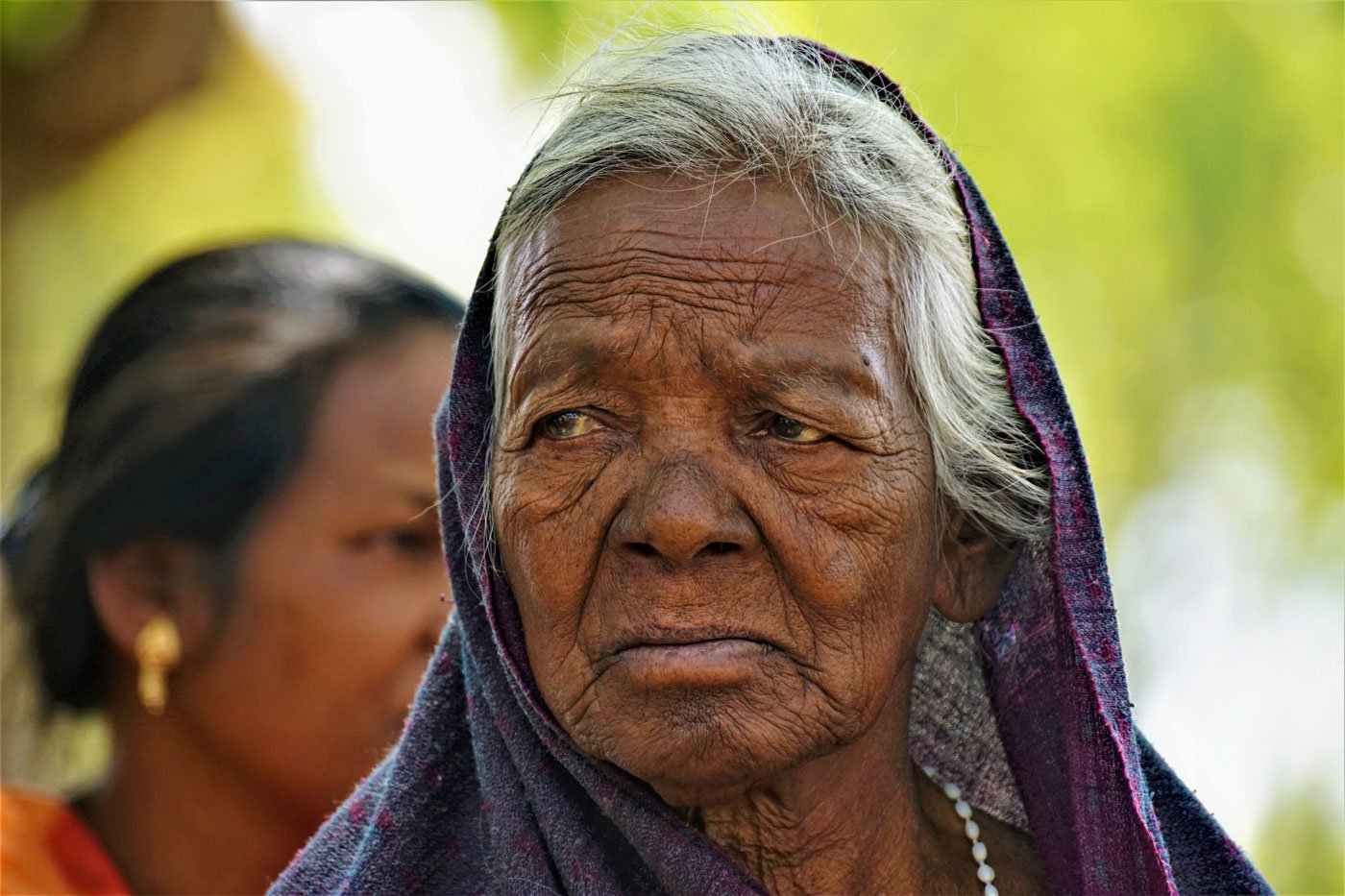

Gram sabha meetings are attended by all, irrespective age, gender and status. Right: Earlier the village depended on this natural stream of water, and women had to travel daily to collect water for their homes
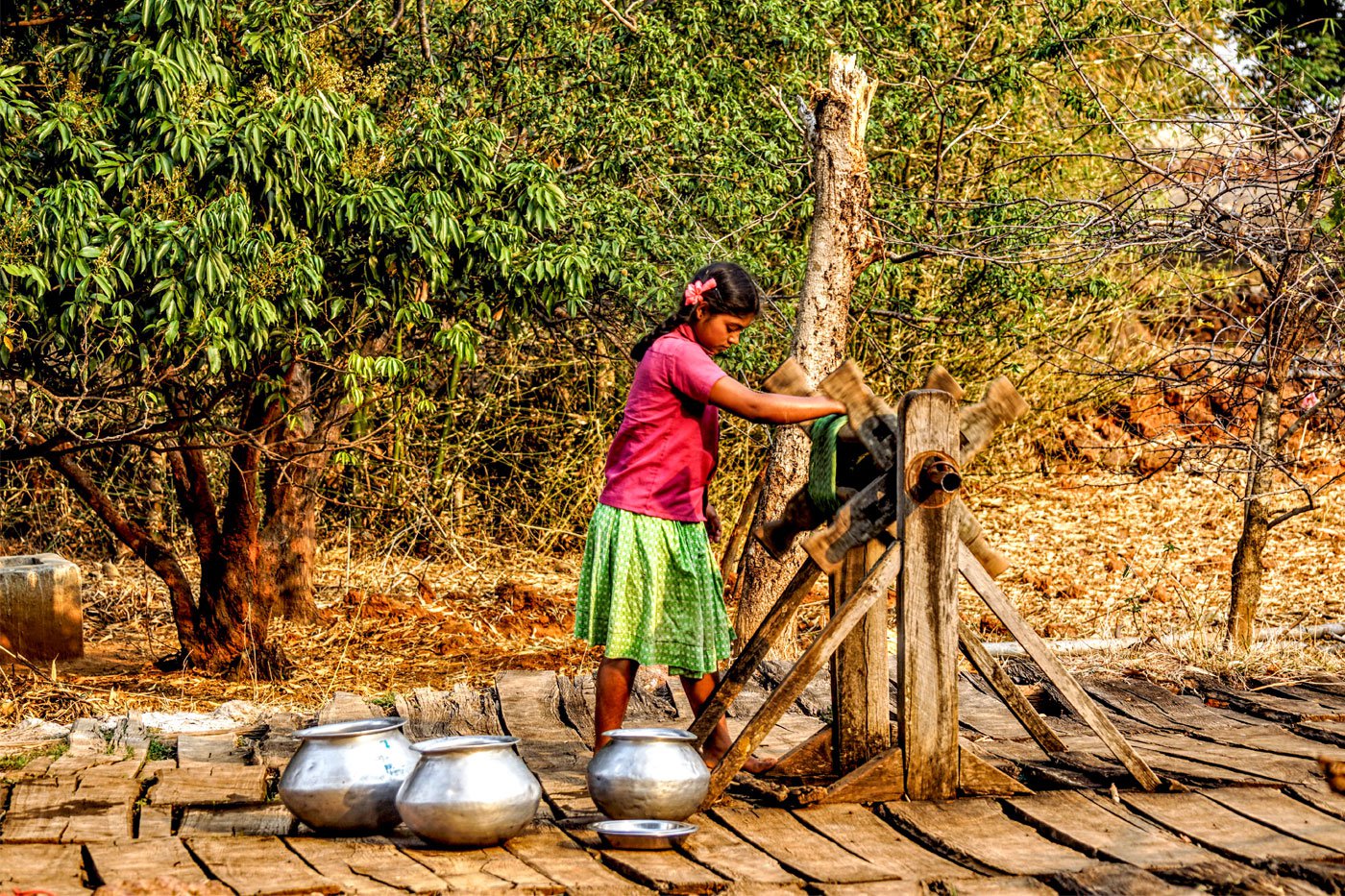
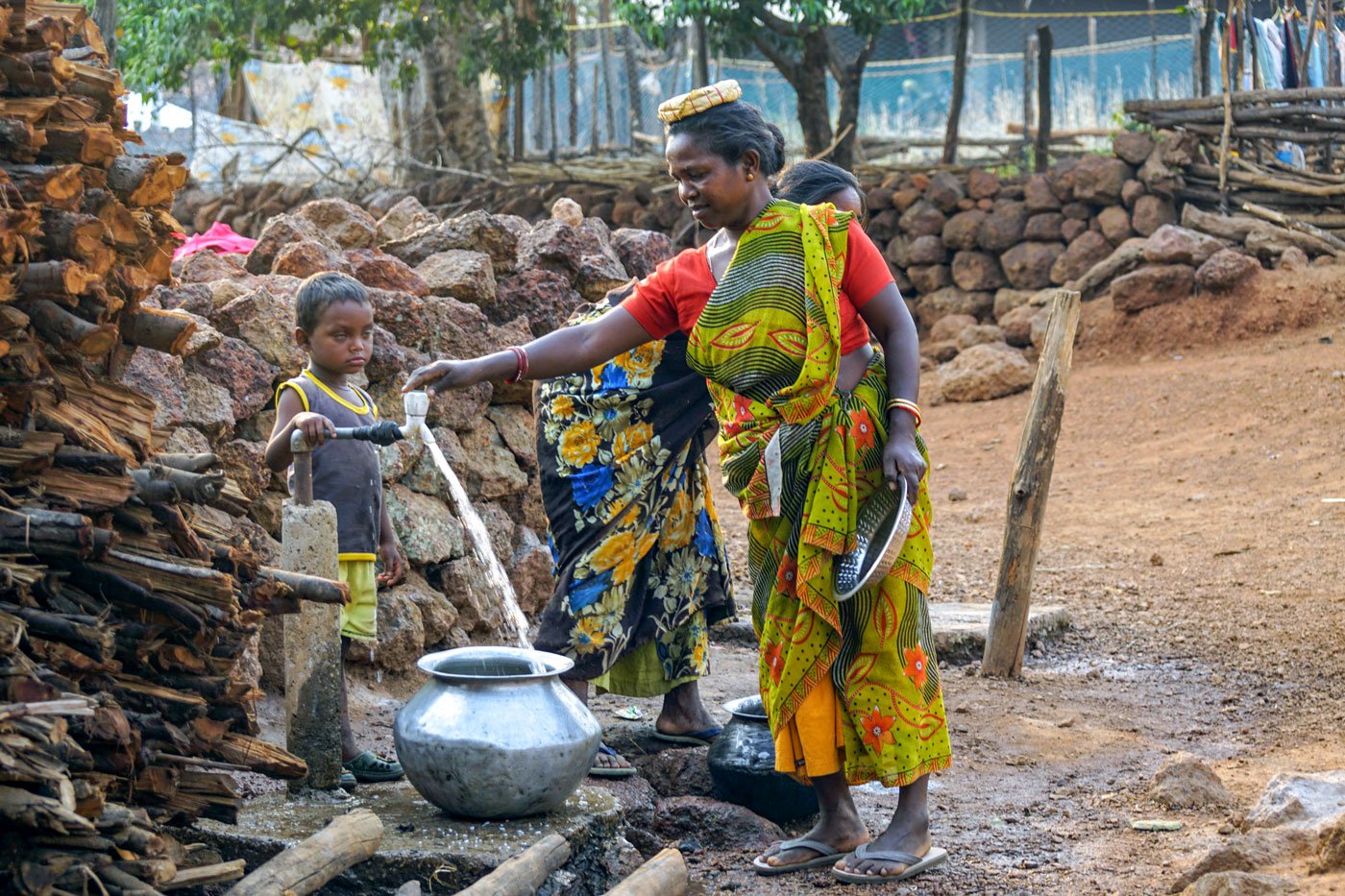
Water is an important issue in Lupungpat, and one that the gram sabha has looked into. A n old well (left) and an important source of water in the village
Other residents say they are not only enjoying the participation in gram sabha but have also managed to solve basic issues through it. “We have solved the issue of our water. Earlier our women were travelling a lot to fetch the water. Now the water supply is there in the village street, we were going to a different village to collect ration but now it has come closer to us,” says Benedict Asur. “Not only that, but we have also saved our village from mining.”
The villagers recount how when they observed outsiders who appeared to be taking a survey for bauxite mining in the forest, an alarm was sounded, many villagers assembled, and they were chased away.
Lupungpat’s villagers have constituted seven committees alongside the gram sabha committee – a basic infrastructure committee, public wealth committee, agricultural committee, health committee, gram raksha committee, education committee and vigilance committee.
“Each committee discusses the concerned issues and the selection process of the beneficiaries. Then they send their decision to the basic infrastructure committee which forwards it to the village development committee,” explains Christopher, a member of the gram sabha. “If we strengthen democratic practices at local level welfare and social justice will take root,” says Professor Ashok Sircar, head of the Centre for Development at the Azim Premji Foundation.
As the gram sabha committee is open to all villagers, they make the decisions and then it is taken to the block office in Chainpur by the village head and ward members.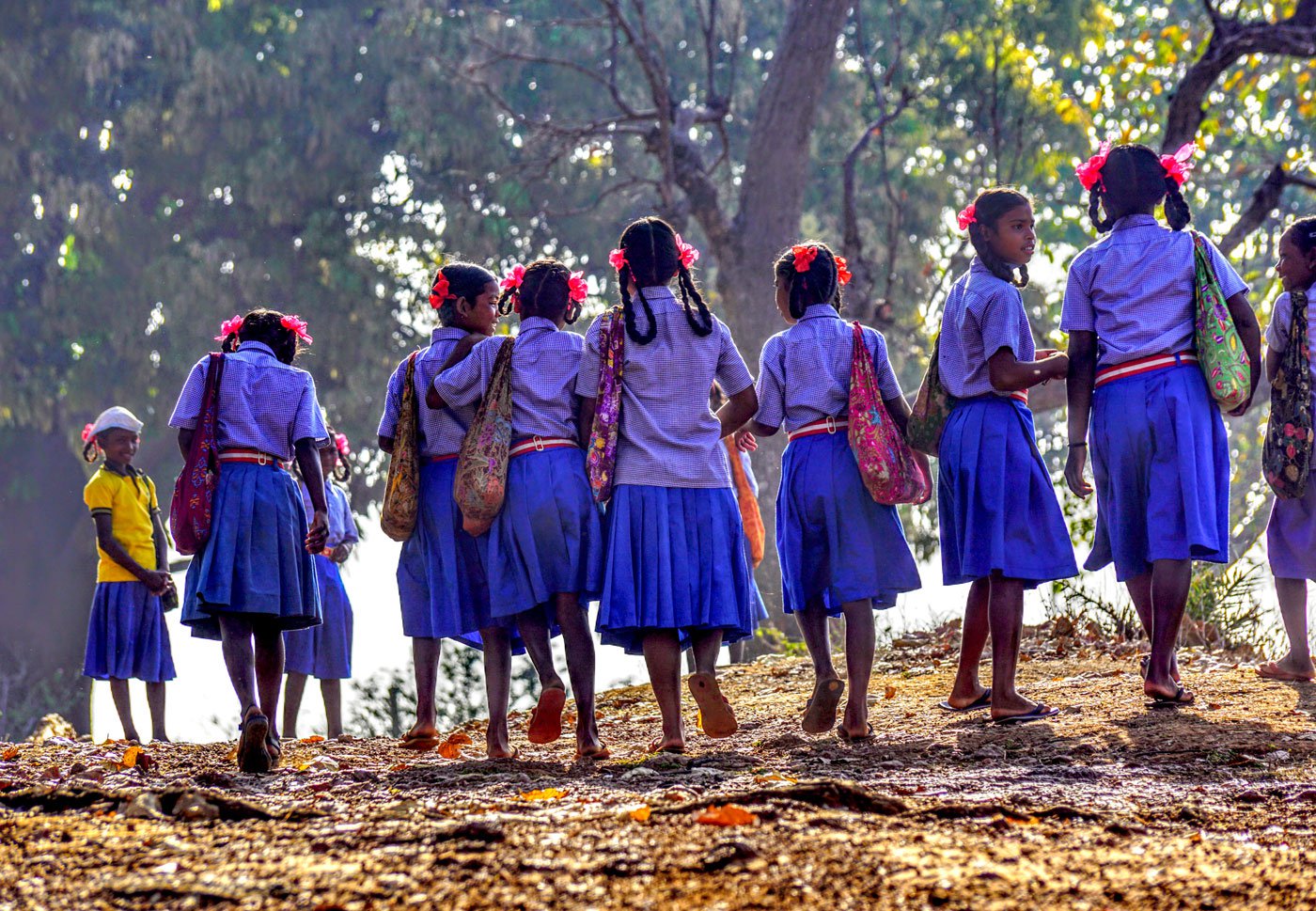
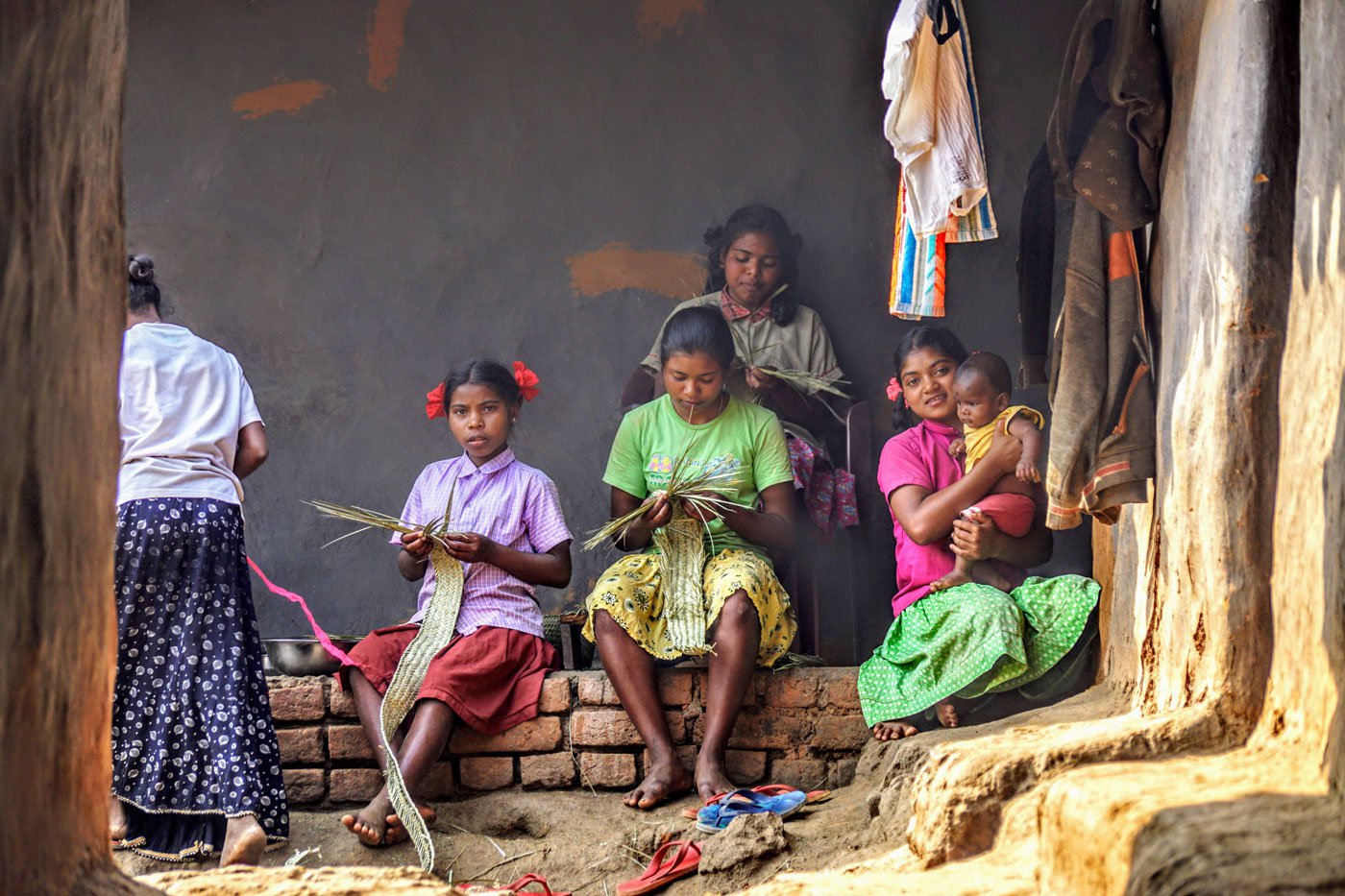
Left: Educating their children is an important priority. A group of girls walking to school from the village. Right: Inside Lupungpat village
“Whatever schemes are there for the village like, social pensions, food security and related to ration cards, everything is being approved by the gram sabha and followed up by action,” says Dr. Sishir Kumar Singh, the Block Development Officer (BDO) of Chainpur block in Gumla district.
During covid-19, many migrants returned home and it was the gram sabha that organised a quarantine centre, ( sachivalay ) and provided it with food, water, and medicines with help of civil societies.
For errant students, locked out of school, the village education committee under the gram sabha came up with a unique solution: “We decided to teach the students by appointing an educated village youth to be with them. All the families paid one rupee per child per day to that youth,” explained Christopher Asur.
“Earlier, in the name of gram sabha, block officials would visit our village with a register, and manage the selection of schemes, beneficiaries etc., and return taking the register with them,” says Christopher, denying many deserving people of the benefits of social schemes.
Lupungpat’s gram sabha has changed all that.
